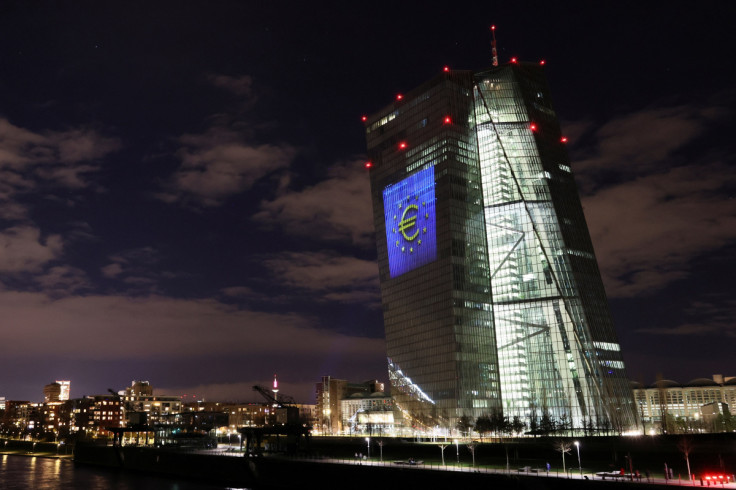ECB Policymakers Argue For 'Restrictive' Policy Despite Recession Risk

The European Central Bank must power ahead with interest rate hikes to tame inflation and should even push borrowing costs to levels that restrict economic activity, despite rising recession risks, policymakers said on Friday.
Starting slowly initially then picking up pace in recent months, the ECB has been unwinding policy support all year and lifted rates by a combined 125 basis points at its past two meetings, the fastest pace of policy tightening on record.
For months it said the goal was to lift rates to a neutral setting, where it was neither stimulating nor slowing growth. But some policymakers now challenge that view, arguing that the neutral rate, seen somewhere between 1.5% and 2%, is not enough.
"We won't stop at the neutral rate, we need to keep powering through," Peter Kazimir, Slovakia's central bank chief, told Reuters.
His colleague, Bostjan Vasle, Slovenia's central bank governor, voiced a similar view, joining a still small but increasing chorus of policymakers making the case for a foray into "restrictive" territory, a policy path now embraced by other central banks, including the U.S Federal Reserve.
"I'm of the opinion that we will have to go above the neutral level in order to calm inflation pressures, which are currently in the pipeline," Vasle said.
Both Kazimir and Vasle, in Washington for an annual meeting of the IMF and World Bank, made the case for a 75 basis point increase in the ECB's 0.75% deposit rate on Oct 27. Vasle said a similar move could come in December, too.
The rapid rate hikes come against the backdrop of a deteriorating economic outlook and ECB Vice President Luis de Guindos warned on Friday that the negative scenario in the bank's most recent growth projection may be materializing.
"What we considered as our downside scenario in September, is coming closer to the baseline scenario," de Guindos told Lithuanian weekly Verslo ?inios.
"I think we are going to face a very difficult combination of low economic growth, including the possibility of a technical recession, and high inflation," he said.
Another hurdle is that financial markets may be overly optimistic about the economic outlook, raising the risk of an abrupt market correction and financial instability, ECB chief Christine Lagarde warned on Friday.
"This makes valuations vulnerable to a range of possible negative surprises, whether from growth, inflation, monetary policy or corporate profitability," Lagarde said.
Once interest rates hit the neutral territory, the ECB could also embark on "quantitative tightening" or a reduction of its nearly 9 trillion euro balance sheet.
This would be mainly done by not reinvesting all the cash maturing in the ECB's 3.3 trillion euro Asset Purchase Programme but both Kazimir and Vasle said this could wait until next year.
Sources earlier told Reuters that policymakers earlier this month had discussed a detailed timeline for quantitative tightening, which envisaged a start sometime in the second quarter.
The ECB could already tweak its language on reinvestments at its October meeting and then could provide a detailed plan possibly in December or February, sources told Reuters.
© Copyright Thomson Reuters 2025. All rights reserved.





















